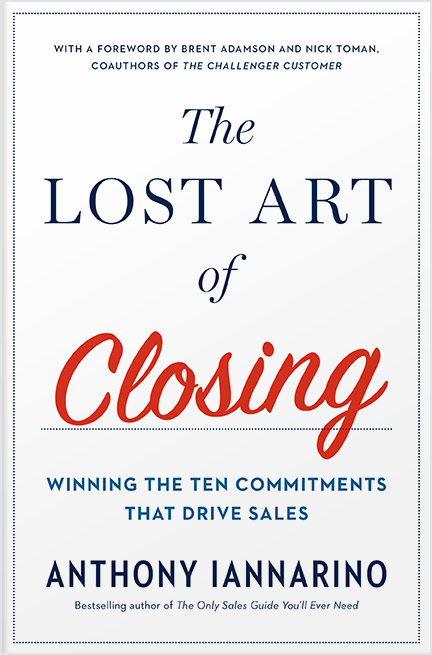Winning a new deal is complicated. Not only does it take time, but it also takes effort. If you don’t invest the time and effort, you are unlikely to win your dream client’s business. But you are not the only party that has to put forth the effort for you to successfully create an opportunity and a better outcome. The contacts within your dream client’s company also have to put forth the effort necessary, making your dream client’s effort as a measure of whether or not you will win their business—and whether you will be able to deliver.
Are They Compelled to Change
There are contacts within your dream client’s company that understand the forces that are preventing them from producing the results they profess to need. They are well aware of the risks and threats to their business, yet they are unwilling to do anything about it now. The fact that they should be compelled to change is no indication that they are compelled to change. Some of these contacts are not willing to put forth the effort to do so, something that is often true even when the company is already suffering the negative impact.
Imagine a company that is underinvesting in the results they need in some part of their business (this should be easy for you to imagine). This hypothetical company built a model around a particular set of assumptions, and they were profitable with that model up until one of their premises expired. The price of some input increases over time, and for the company to return to profitability, they need to raise the price they charge their clients or customers, but they are in a weak position to command a price increase. If the contacts are not willing to put forth the effort to change their pricing or change their model, their lack of energy around some change initiative is an indication they are not yet compelled to change.
The lack of effort here is a signal that your effort is not likely to provide a return on the time you invest, or at least it won’t for some time.
Are They Willing to Commit to the Process
You sell a meeting. You sell the processes. And then you sell your solution. You will find contacts who are more than willing to engage with you and explore change. They’ll give you their time, and they’ll share with you what they want and need. They’ll even accept a proposal and pricing. But what they will not do is commit to a process that would require them to put forth the energy necessary to change.No more pushy sales tactics. The Lost Art of Closing shows you how to proactively lead your customer and close your sales. 
An unwillingness to commit to meetings is a sign that your dream client either doesn’t recognize the value of the meeting, an outcome for which you are responsible, or they don’t want to put forth the effort. In larger, complex, business-to-business sales, contacts who refuse to meet to collaborate on the solution they need, to invite other stakeholders into the conversation, to engage a leadership sponsor, or to provide data or anything else that would be necessary to making a good decision and a better result, show an unwillingness to put forth effort. Skipping these conversations is sometimes an indication they believe what they are buying is a commodity and is transactional. In other cases, your dream client is unwilling to exert the effort to do what’s right.
If you are reading this, it’s almost certain you have a sales process, guidance on what you need to accomplish to provide the best assistance possible in helping your dream client produce better results. Your process requires that you put forth the necessary effort to execute it. Your process is also likely to describe what you need from your prospective client to help them.
Because no one can sell when there is no one buying, you need your client to put forth the necessary effort on their side. The likelihood of you winning a deal is often discovered by looking at the effort your contacts are willing to put forth in engaging in the process with you. The fact that they won’t engage with your process is not evidence that they aren’t engaged in someone else’s.
Are They Willing to Do the Work
When you are young and naive, you believe that every failure to serve a client is your company’s fault. When you sold the deal and are accountable, you passionately think your company is in the wrong. As you mature into your role, you to start to recognize that many of your dream clients want better results, need better results, and pursue new suppliers to produce those results. However, they never achieve those results because they won’t put forth the effort.
When determining whether or not you are going to be able to pursue successfully, win, and execute for a prospective client, your confidence in some part needs to factor in their willingness to put forth the effort throughout the sales conversation. An unwillingness to have the conversations and make and keep the required commitments is evidence that you may struggle to win their business and, having won it, difficulty executing your solution.
None of this is to suggest that you give up, but rather, encouragement to have the difficult conversations that make one a trusted advisor and to do the work to sell well enough to increase their willingness. It’s much easier to sell and execute effectively with a client who is putting forth an effort that is equal to yours.








.jpg?width=768&height=994&name=salescall-planner-ebook-v3-1-cover%20(1).jpg)


